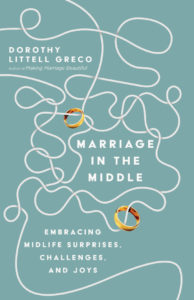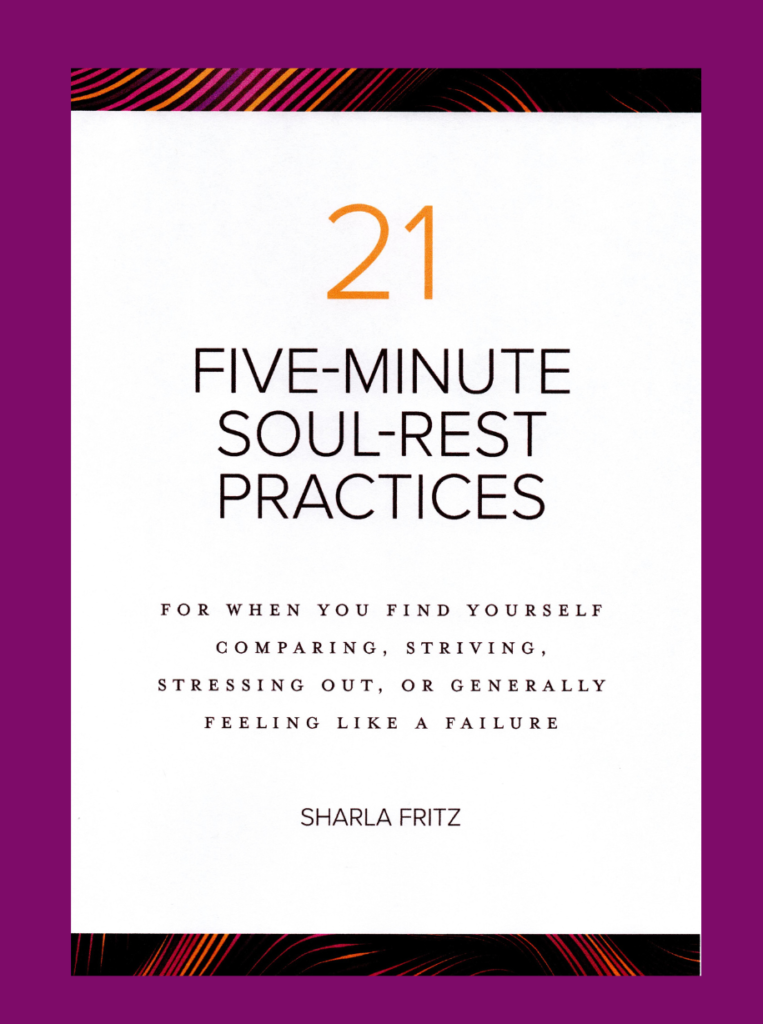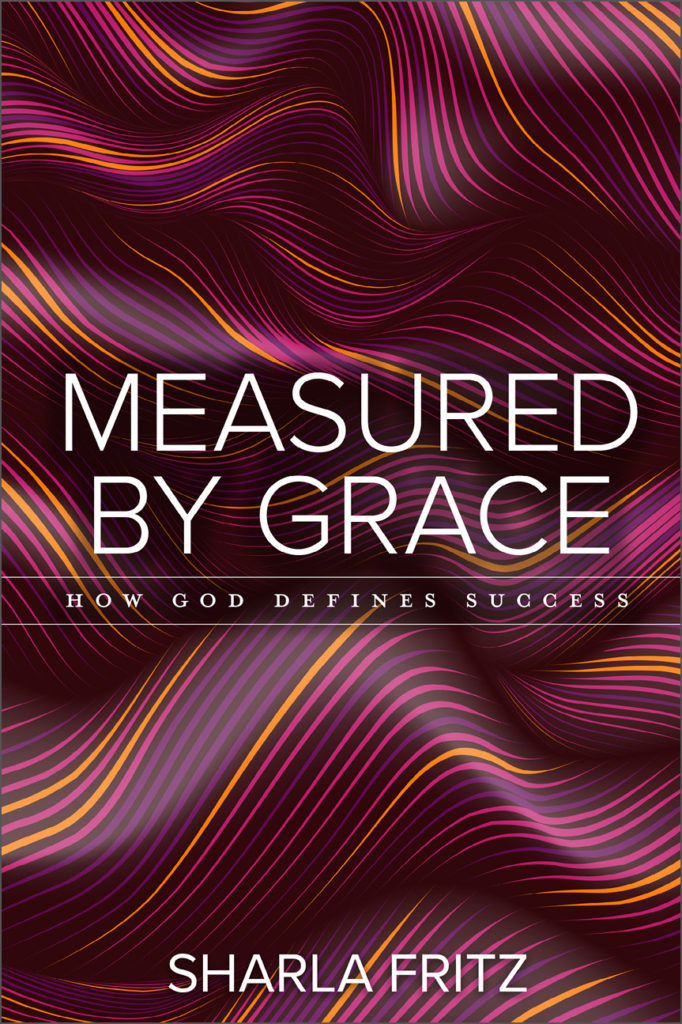
This guest post by my writer friend Dorothy Greco is an excerpt from her new book, Marriage in the Middle, which releases next week! Learn how disappointment can actually help our marriages! Enjoy this post and find out more about her book at the end. Also check out my review of her first book Making Marriage Beautiful.
All couples, even happily married ones, face disappointment. How we respond to the disappointments can make or break our marriage. If we fail to address them, disappointments can accumulate and morph into despair or resentment. For this complicated feeling to have any payoff, we must not view it as an inconvenience or irritation but as an invitation to grow. By accepting this invitation, we can learn to whole-heartedly love our spouse.
The Disappointment-Expectation Connection
Most of our disappointments can be traced directly back to our expectations. Every one of us brings multiple expectations into marriage. Some of those expectations include fidelity, honesty, and sexual intimacy—all essential components for healthy marriages. But here’s the rub: we tend to be specific about how our spouse should meet these desires. In other words, we have expectations about our expectations. My husband Christopher and I each expected love on our terms, and those terms were not congruent.
In Marriage in the Middle, Christopher writes that, “I used to believe that men come into marriage with fewer expectations than women do, but I have begun to question that conclusion. I now understand that I’ve experienced disappointment in our marriage connected to three areas: food, chores, and emotional availability.” Because of his Italian-American family tradition, he expected me to cook twice as much food as we needed whenever we had company. Because his parents divided household tasks along neat gender lines, he expected me to do the laundry and love it. And because he’s an extroverted extrovert, he expected me to listen to his many words.
Despite my deep love and profound respect for Christopher, I’ve had my own disappointments. Unbeknownst to me, I walked down the aisle carrying specific expectations about how he should express love and affirmation. I wanted the perfect gift on special occasions. I wanted to hear him say, “You look beautiful!” or “That might be the best talk you’ve ever given!” more than once a year.
Unfortunately, Christopher’s family has a complex relationship with gift giving and affirmation. Gifts were seldom curated leaving him and his siblings occasionally feeling perplexed and unknown. If his mom cooked a delicious meal, his dad would offer this rather obtuse praise: “It came good.” Knowing his family put his behavior in perspective, but it didn’t eradicate my disappointment. When I looked beautiful or nailed a talk and he was silent, my disappointment turned to hurt and sometimes anger.
The Hidden Promise of Disappointment
Given the link between expectations and disappointment, you might assume that if you jettison the former, you’ll avoid the latter. Because expectations reference our wants and needs, we’re better off paying attention to, rather than ignoring them. Then as we gain clarity, we can negotiate and, when necessary, recalibrate. Disappointment can help us become more content and more accepting if we discern what it’s trying to teach us. If we ignore disappointment’s message, we may short-circuit the process of transformation that midlife means to impart.
Disappointments expose the limits of our power. I cannot make Christopher notice that I look awesome or force complimentary words out of his mouth. Likewise, no matter how much he longs for me to be like him, he cannot make me an external processor. Once we realize and accept the limits of our power, it should allow us to refocus our energies on what we can change.
The reality is we aren’t powerless, but we only have the authority to change ourselves, and even that is limited when it comes to certain issues. If we focus on how the other person needs to change—and plot how that’s going to happen—we will probably get stuck in disappointment or possibly descend into disillusionment.
Disappointments also give us an opportunity to discern if we have any disordered desires, which tend to wreak havoc on all relationships. When I expect Christopher to tell me who I am rather than going to God for my identity, I’m going to feel disappointed and hurt when he does not comply with my agenda. Christopher can affirm my identity, but God is the only one who can name me. Expecting our spouse to fill God’s role, will inevitably leave us feeling disappointed. The solution is not to cut ourselves off from desire but to rightly order those desires.
Finally, confronting our disappointments helps us to move toward loving our spouse for who they are, not who we think they should be. There’s a reciprocal nature to this. We love our spouses despite their limitations and weaknesses and in turn, hope that they will likewise love us. If you’re uncertain about whether or not you’re holding unrealistic expectations for your spouse or your marriage, pay attention to places where you overreact, have routine conflict, or judge each other. You could also ask a variation of this question: How realistic are my expectations based on who I married? Not who I think I married, not who I hoped to marry, but who I actually married.
My desire for Christopher to regularly affirm me is not wrong, but it is unrealistic based on who he is. Neither is it wrong for him to want me to listen as he processes his many thoughts. Our desires for our spouse do not magically empower them to become a different version of themselves.
It’s helpful to have ongoing, nondefensive conversations in which we can parse out wants, needs, and expectations. This is one of the most difficult yet most essential opportunities of midlife marriage. If we continue to cling to our unrealistic expectations, we not only become entrenched and inflexible but are also in danger of becoming bitter. Conversely, as we begin to form healthy, realistic expectations, it frees us to fully embrace our spouse because we’re no longer judging them or needing them to be someone else.

Adapted from Marriage in the Middle by Dorothy Littell Greco. Copyright (c) 2020 by Dorothy Littell Greco. Published by InterVarsity Press, Downers Grove, IL. www.ivpress.com

Dorothy Little Greco is the author of Making Marriage Beautiful and Marriage in the Middle. When she’s not writing or making photos, she loves to kayak and hike with her husband. You can find more of Dorothy’s work on her website: http://www.dorothygreco.com/



Follow Me!